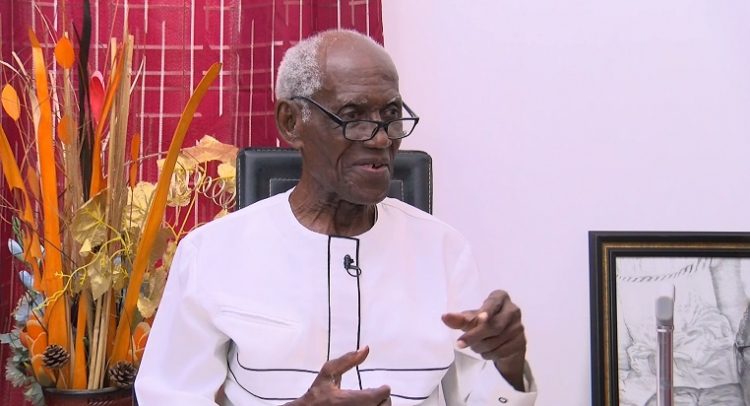Before Joe Lartey became one of the most popular sports – especially football commentators in Ghana, there had been others before him – notably, Gilbert Tetteh Addy and Edmund Bannerman.
Later, Joe commentated on football matches in the company of Festus Addai and William Opare. But in those days and immediately afterwards, if anyone had done a ‘vox pop’ on the question: “Whose football commentary do you enjoy the most?” he/she would most probably have got 90% of those participating in the poll responding, “Over to you, Joe Lartey!”
Joe was so eloquent that his fellow commentators could not help but popularise his name by constantly saying, “Over to you, Joe Lartey!” when they wanted to pause for a moment to overcome their excitement, and/or collect their thoughts; or to try to recall the name of a player, or the refresh their narration with an incident that had occurred during a match but which, for the moment, refused to come readily to mind. “Over to you, Joe Lartey!” they would say. And quick as a flash, Joe would say, “Oh, you mean the time Ghana beat Nigeria by seven goals to nil?” or something as unbelievable as that.
Joe would provide the information in a matter-of-fact way, without giving the impression that it was so easy to recall that it should have come to the mind of the enquirer without assistance. That humility, again, offered any noticeable self-consciousness endeared him to both his audience and his fellow commentators alike. But best of all, Joe’s words were appreciated because they came naturally to him, without a trace of affectation or insincerity. With Joe, you got it as it WAS!
He wouldn’t pretend that the Ghana Black Stars, say, had put up a magnificent fight but had been ‘cheated’ with a poor result, when they had, in fact, been ‘rubbish’ on the field.
Alas, Joe is no more. He passed, at the ripe age of 96, on April 26, 2024. Joe was born in Accra and went to school in various Ghanaian localities, where his father, who worked in the public service, was posted. He entered Accra Academy for his secondary education, and was about to be trained as a teacher later when he got a tip that he could sit for the Cambridge School Certificate Examination if he took a correspondence course with a famous organisation known as ‘Wolsey Hall’ based at Oxford, England.
No sooner had he passed ‘Cambridge’ than he applied to the branch of the British Navy in the Gold Coast to become a soldier in the British war against Germany. Joining the Navy was an impulsive decision which nearly cost him his life, for he was posted onto a warship that patrolled the waters between Gibraltar and West Africa.
On one occasion, the warship was torpedoed on West African waters and suffered some casualties. Joe was among a small group of survivors who were put in a lifeboat and stayed on the boat for some days before being rescued.
The experience taught Joe to be fearless, and when he grew up in Ghana, he had several encounters in politics that were costly to his comfort and safety.
He had to escape to Nigeria, through Togo at one time, when he was advised that soldiers ordered by General Kutu Acheampong, were looking for him, because he was volubly opposed to the General’s ‘Union Government’ project.
In Nigeria, Joe was well known for the joint commentaries he had broadcast with Isola Folorunsho, and he was given a nice job at the Federal Radio Corporation of Nigeria in Lagos. On his return to Ghana, he became a TV personality.
By CAMERON DUODU


